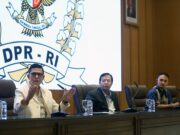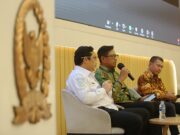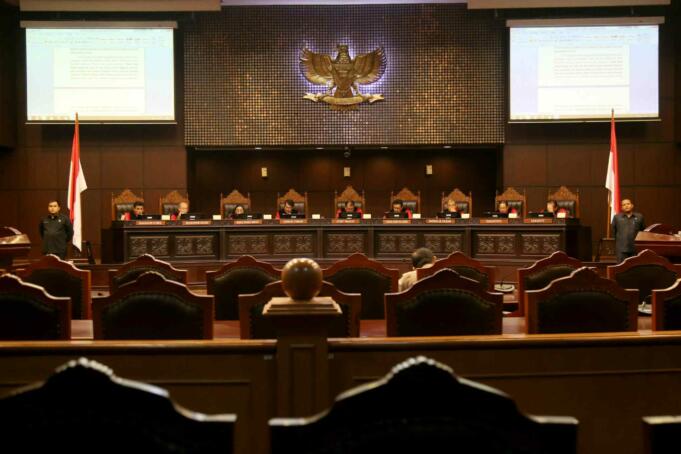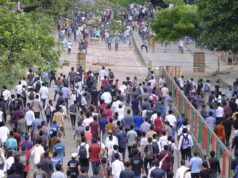Jakarta, Aktual.com – The Constitutional Court (MK) granted part of the judicial review of Act No. 11 The year 2008 on Information and Electronic Transactions (UU ITE), and Act No. 20 of 2001 on the Amendment of Act No. 31 of 1999 on the Eradication of Corruption (Corruption Act) filed Novanto.
UU ITE judicial review about Article 5, paragraph (1) and Article 44 letter b. Both chapters organize the provision of information and or electronic documents following the printouts as evidence valid law and its provisions could be used as evidence in the investigation, prosecution and law enforcement inspection.
The Anti-Corruption Act, the applicant filed judicial review provisions of Article 26A which regulate legal evidence referred to in Article 188 paragraph (2) of Law No. 8 of 1981 on Criminal Proceedings.
“To grant the applicant’s request in part,” said Chairman of the Constitutional Assembly Arief Hidayat while reading the ruling of the Court in the Constitutional Court, Central Jakarta, Wednesday (7/6).
The Court stated the electronic information as UU ITE and Corruption Law does not have binding legal force, as long phrases or electronic information and electronic documents and or prints as interpreted as valid evidence in accordance with the law applicable in Indonesia.
Other Constitutional Justice, Manahan MP Sitompul explained that not all parties can do the tapping. He explained that there was a shortage existing regulations in Indonesia regarding wiretapping.
“To complete it, in consideration of the Court is included in it, not everyone can do the tapping, then the implementation of the UU ITE conditional legal grounds,” he explained.
Court asserted in the application of wiretapping, should be in accordance with applicable regulations, namely at the request of law enforcement as stipulated in UU ITE. In other words, recording ‘Papa Request Shares’ is used as a weapon of AGO fall by themselves. Therefore, the tape was judged not meet the elements and not recorded at the request of law enforcement.
Dissenting opinion
The Constitutional Court’s decision is accompanied by a dissenting opinion from two of the nine judges of the constitution. They are constitutional judge I Dewa Gede Palguna and constitutional justice Suhartoyo.
One of the judges of the constitution, Palguna state the applicant did not have legal standing to file a judicial review of UU ITE dan UU KPK because the applicant is a member of the House of Representatives.
*Musdi Anto
Artikel ini ditulis oleh:


















